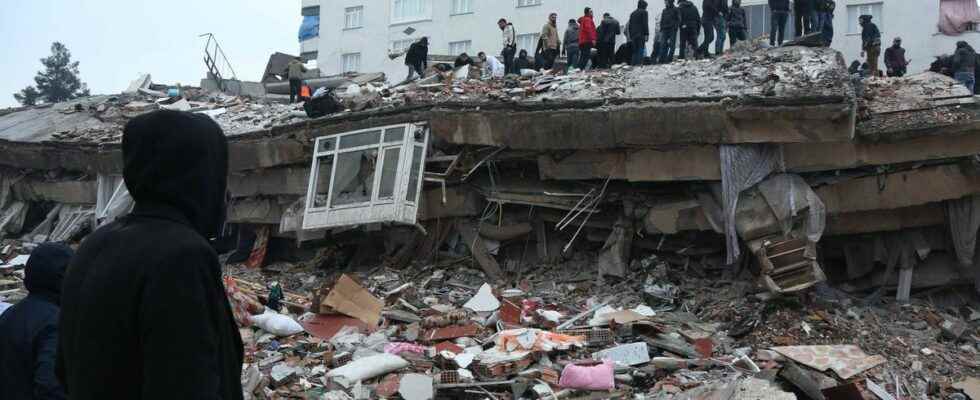Published on
Updated
Reading 2 mins.
At 4:17 a.m. on February 6, a magnitude 7.8 earthquake struck southeastern Turkey, near the city of Gaziantep, and a large part of northern Syria. At the time of writing, more than 2,600 dead, including 1,000 in Syria, are to be deplored. But the situation on site and the number of buildings affected raise fears of a much heavier toll. For Doctissimo, Louise Bichet, head of the Middle East department for Médecins du Monde, talks about the most urgent medical measures in such a situation.
What are the main needs when an earthquake occurs?
Louise Bichet, head of the Middle East department for Médecins du Monde: The immediate needs are mainly to find the survivors under the rubble as quickly as possible of course. There will also be a need for appropriate care such as trauma care and then primary health care in the most affected areas which are already in a situation of extreme vulnerability.
I would also add that the needs for psychological first aid are very strong in this type of very traumatic situation. The sheltering of people who have lost their homes and who will suffer from an already very harsh winter is also an emergency. And then there will very quickly be food and drinking water supply needs. It should be remembered that the cholera epidemic is still present, it will be a major challenge to have effective access to drinking water.
Doctors of the World continues to carry out a detailed assessment of needs and to map the most affected areas. But we have already started to respond directly or through our partners through primary health centers, teams and mobile clinics. The Médecins du Monde teams themselves are sometimes affected, but we have already started to redirect activities or redirect mobile clinics closer to the needs already identified.
Turkey has appealed for international aid and its governmental structure and institutions will a priori be able to effectively coordinate national and international aid. In Syria, it will be more complex and a priori heterogeneous depending on the authorities and forces in control of each territory, particularly in northwestern Syria which is of course partitioned. Beyond coordination, the challenge of opening borders to meet humanitarian needs is crucial. Political and military considerations must be overcome so that aid can be channeled regardless of patients and their locations. Coordination takes place.
Allianceurgences.org: a site to participate in international aid
To bring your help to the Turkish and Syrian populations, find the donation campaign operated by Alliance Urgences, an association bringing together 6 major humanitarian NGOs in the field: Action Contre la Faim, CARE France, Handicap International, Médecins du Monde, Plan International France and Solidarités international on Allianceurgences.org
